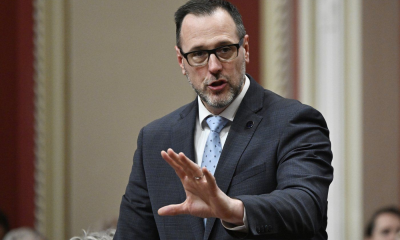Mohamed Elibiary is a national security expert advising the homeland security enterprise and Texas-based Muslim community leader.
Keep supporting MuslimMatters for the sake of Allah
Alhamdulillah, we're at over 850 supporters. Help us get to 900 supporters this month. All it takes is a small gift from a reader like you to keep us going, for just $2 / month.
The Prophet (SAW) has taught us the best of deeds are those that done consistently, even if they are small.
Click here to support MuslimMatters with a monthly donation of $2 per month. Set it and collect blessings from Allah (swt) for the khayr you're supporting without thinking about it.
With more than a week past the Boston Bombings, public emotions are beginning to subside. But many Muslim communities are still left dealing with their fear of a backlash or hate crime at their Masjid (Mosque) or Islamic school.
In response to the Boston attack, the United States Government (USG) mobilized a great deal of resources in order to protect the public’s safety. An aspect of that mobilization involved a large outreach effort to Muslim as well as other faith-based communities in order to pre-empt and where possible prevent the potential for any backlash and/or hate crimes. That good work will continue.
Bigotry has no single community it calls home and no single target in such situations. As Muslims, we are naturally sensitive to Muslim victims of hate crimes. But there have also been members of numerous other communities targeted in a moment of backlash, from Italian-Americans, Hispanic-Americans, Sikh-Americans, and the list goes on and on.
One theme I have tried to live my life in accordance with as well as espouse regularly to Muslim audiences in my hometown and across the country is self-reliance. That means that in order for our homeland to achieve resiliency as an ultimate goal in the face of man-made or natural disasters, then local communities must perform a role in safeguarding their own security. That doesn’t mean that they should start taking on responsibilities local fire and police departments do, much less what state and federal intelligence agencies should be performing. What self-reliance does mean is they should educate themselves about threats out there, plan proactively for their congregation’s physical safety and where possible create emergency response plans their members can follow in case of unforeseen emergencies.
It is with that mission in mind that I accepted an invitation in February to help create Model Emergency Management Plans for Schools and Places of Worship. At conference in Febuary, two models by faith-based communities (Jewish & Christian) were shared publicly.
Virtual Roundtable- May 1st, 2013
On May 1st the Department of Homeland Security will host a Virtual Roundtable building upon the White House event a couple of months ago and other milestones. The training’s purpose is to guide local communities all across the country on how to conduct security assessments for their schools and houses of worship.
I encourage every Masjid/Mosque congregation and Islamic school to identify a community volunteer capable of attending this virtual roundtable and bringing back to their congregation’s management the resources that will be shared. Just as many congregations appoint for example a point person to represent them in the media, an individual should be tasked to attend this online training and become the point person for that congregation on preventative physical security for those praying at the Masjid/Mosque or attending an Islamic school.
Following the Newtown, CT and Oak Creek, WI mass casualty shooting incidents, assessing the security vulnerabilities of our schools and houses of worship is more critical than ever. In support of the Presidential Initiative on Reducing Gun Violence, this virtual roundtable explores how to assess and strengthen security at houses of worship and K-12 schools.
Representatives from the Department of Homeland Security and from religious and educational communities will discuss how to:
• Develop assessment teams
• Assess security measures
• Create a culture of security throughout the institution
This free, online, interactive roundtable will include panel discussions, a question-and-answer session, and additional resources.
Conducting Security Assessments: A Guide for Schools and Houses of Worship Virtual Roundtable
Wednesday, May 1, 2013 | 2:00 – 3:00 p.m. (EST)
Who Should Attend:
• Leaders, administrators, staff, and volunteers from schools and houses of worship
• Law enforcement and Federal, State, local, tribal, and territorial officials
MODERATOR:
Andrea T. Schultz – Chief, Commercial Facilities Section, Office of Infrastructure Protection, Department of Homeland Security
PANELISTS:
Bob Hellmuth – Director, Department of School Safety and Security, Montgomery County, MD Public Schools
Paul Goldenberg – Vice Chair Homeland Security Advisory Committee’s Faith-based Security and Communications Advisory Committee
Matt Wombacher – Protective Security Advisor, National Capital Region, Department of Homeland Security
TO REGISTER PLEASE CLICK BELOW:
www.DHSVirtualRoundTableRegistration.net
For more information, please contact pscdoperations@hq.dhs.gov
A limited number of phone lines will be available for participants, so please plan to listen online using your computer’s speakers or headphones.
Finally should any Muslim community across the country have any concerns or if their community requires any special assistance to join, please feel free to email me (Mohamed Elibiary) at: Hamada@MuslimMatters.org
Editor’s Note: U.S. readers are requested to share this information with their Islamic Centers, Masajids and Islamic Schools.























